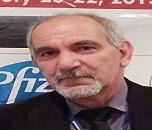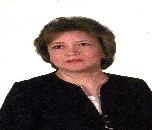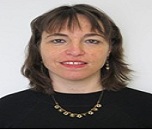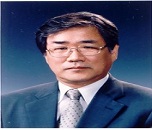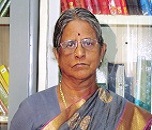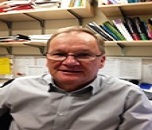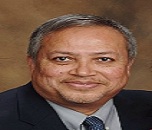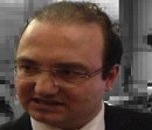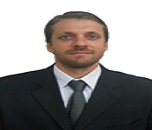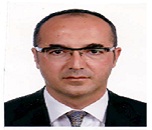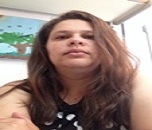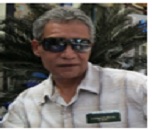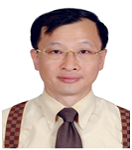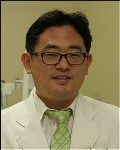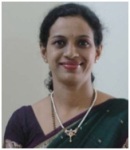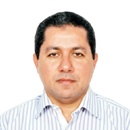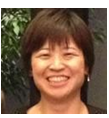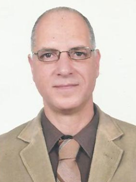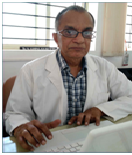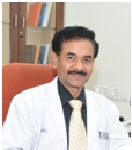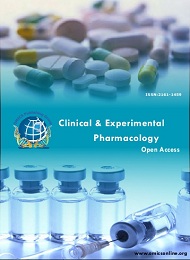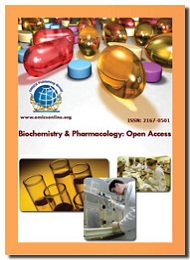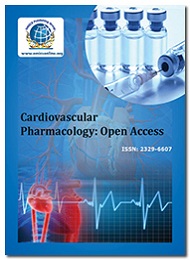Theme: Grooming the Pharmacological Boundaries for Drug Discovery and Development
Pharmacology 2017
Conferences Series LLC invites all the participants across the globe to attend '9th World Congress on Pharmacology' during September 04-06, 2017 in Paris, France which includes prompt keynote presentations, Oral talks, Poster presentations and Exhibitions.
Pharmacology 2017 focuses on the importance to understand drugs and how they can affect human physiology. It is with better understanding of Pharmacology one can know the right dosage and dosage forms of drugs. More research in pharmacology deals with identifying and responding to drug interactions and its side effects along with its mechanism of action, its therapeutic index and thereby treat accordingly. More intensive study with the interaction between drug and its therapeutic effect helps to identify the properties of ideal drugs.
Track 1: Pharmacology
Pharmacology is the study of how substances interact with living organisms to produce a change in function. It deals with the research, discovery, and characterization of chemicals which show biological effects and the illumination of cellular and organism function in relation to these chemicals. If substances have medicinal properties, they are considered pharmaceuticals. The Pharmacology encompasses mechanisms of drug action, drug composition and properties, interactions, toxicology, therapies, medical applications, and antipathogenic capabilities.
Related Conferences:
7th Global Experts Meeting on Neuropharmacology, July 31-Aug 02, 2017 Milan, Italy; 10th International Conference and Exhibition on Pharmaceutics & Novel Drug Delivery Systems, March 13-15, 2017 London, UK; 6th Global Experts Meeting on Cardiovascular Pharmacology and Cardiac Medications, April 13-14, 2017 Dubai, UAE; 8th World Congress on Pharmacology and Toxicology, July 24-26, 2017 Melbourne, Australia; 5th International Conference and Exhibition on Pharmacology and Ethnopharmacology, March 23-25, 2017 Orlando, USA; 9th Annual European Pharma Congress, July 10-12, 2017 Madrid, Spain; 10th Asia-Pacific Pharma Congress, May 08-10, 2017 Singapore; 2nd International Conference and Exhibition on Marine Drugs & Natural Products, June 15-17, 2017 London, UK
Related Societies:
European Association for Clinical Pharmacology and Therapeutics (EACPT); Chinese Pharmacological Society; American society for Clinical Pharmacology (ASCPT); The Australian society of clinical and experimental pharmacologists and toxicologists (ASCEPT); British Pharmacological Society (BPS); Chinese Pharmacological Society; American Society for Clinical Pharmacology and Therapeutics; American Academy of Veterinary Pharmacology and Therapeutics (AAVPT); American Society of Clinical Psychopharmacology (ASCP); Association for Applied Human Pharmacology (AGAH); Association for Ocular Pharmacology and Therapeutics
Track 2: Neuropharmacology and Psychopharmacology
Psychopharmacology is the learning of the effects of medication on the psyche (psychology), observing changed behaviors and how molecular events are manifest in a measurable behavioral form. Neuropharmacology is the study of the effects of medication on central and peripheral nervous system performance. Principles related to psychopharmacology. Neurogenesis and repair deal with other aspects on the indications for medications prescribed to address psychiatric and behavioral problems, that are associated with, including antipsychotic, anxiolytic and anticonvulsant medications, acquired brain injury and Neurocognitive effects associated with therapeutic drugs also include mood stabilizers and treatments prescribed for disorders of attention. The treatments may cause side effects such as induction of the metabolic syndrome, type-2 diabetes related to the medications prescribed for management of psychiatric and behavioral disorders and disturbances. Ethnopsychopharmacology also deals with the biotransformation and metabolism of medications, as well as specific differential actions: i.e., CYP450 enzymatic inhibition and induction of metabolism of psychopharmacological and herbaceutical substrates.
Related Conferences:
7th Global Experts Meeting on Neuropharmacology, July 31-Aug 02, 2017 Milan, Italy; 10th International Conference and Exhibition on Pharmaceutics & Novel Drug Delivery Systems, March 13-15, 2017 London, UK; 9th Annual European Pharma Congress, July 10-12, 2017 Madrid, Spain; 10th Asia-Pacific Pharma Congress, May 08-10, 2017 Singapore; 2nd International Conference and Exhibition on Marine Drugs & Natural Products, June 15-17, 2017 London, UK; 3rd International Conference and Expo on Drug Discovery & Designing, September 25-27, 2017 Vienna, Austria; 5th International Conference and Exhibition on Pharmacognosy, Phytochemistry & Natural Products, July 24-26, 2017 Melbourne, Australia
Related Societies:
The Australian society of clinical and experimental pharmacologists and toxicologists (ASCEPT); British Pharmacological Society (BPS); Chinese Pharmacological Society; Brazilian Society of Pharmacology and Experimental Therapeutics (SBFTE); Canadian Society of Pharmacology and Therapeutics (CSCP); Croatian Pharmacological Society (HDF); Dutch Pharmacological Society (NVF); European Society of Ethnopharmacology (ESE); British Association for Psychopharmacology (BAP); Colombian Association of Pharmacology (ACF); European Association for Veterinary Pharmacology and Toxicology (EAVPT)
Track 3: Clinical Pharmacology and Receptor Therapy
Clinical Pharmacology has been practiced for centuries through observing the effects of herbal remedies and early drugs on humans. The pharmacologic effect that a medication has on the body is known as pharmacodynamics. Pharmacokinetic and pharmacodynamic parameters become important because of the association between host drug concentrations, microorganism eradication, and resistance. Since long scientific advances allowed scientists to come together with the study of physiological effects with biological effects Receptor theory for drug effects and its discovery with clinical pharmacology has stretched out to be a multidisciplinary field and has contributed to the findings of drug interaction, therapeutic effectiveness and safety. Drug interactions and pharmacological compatibilities include the study of pharmacokinetics that includes the absorption, distribution, metabolism, and elimination of drugs. The pharmacologic effect that a medication has on the body is known as pharmacodynamics. Pharmacokinetic and pharmacodynamic parameters become especially important because of the association between drug application, microorganism abolition, and resistance.
Related Conferences:
7th Global Experts Meeting on Neuropharmacology, July 31-Aug 02, 2017 Milan, Italy; 10th International Conference and Exhibition on Pharmaceutics & Novel Drug Delivery Systems, March 13-15, 2017 London, UK; 6th Global Experts Meeting on Cardiovascular Pharmacology and Cardiac Medications, April 13-14, 2017 Dubai, UAE; 12th Annual Pharma Middle East Congress, Sep 25-27, 2017 Dubai, UAE; 4th International Conference on Past and Present Research Systems of Green Chemistry, October 16-18, 2017 Atlanta, USA; 13th International Conference and Exhibition on Pharmaceutical Nanotechnology, July 24-25, 2017 Rome, Italy
Related Societies:
Argentine Society for Experimental Pharmacology (SAFE); Australian Physiological and Pharmacological Society (APPS); Brazilian Society of Pharmacology and Experimental Therapeutics (SBFTE); Canadian Society of Pharmacology and Therapeutics (CSCP); Croatian Pharmacological Society (HDF); Dutch Pharmacological Society (NVF); Egyptian Society of Pharmacology and Experimental Therapeutics (ESPET); European Society of Biochemical Pharmacology (ESBP); European Society of Ethnopharmacology (ESE); French Society of Pharmacology (SFP); German Society for Experimental and Clinical Pharmacology and Toxicology (DGPT); Indian Pharmacological Society (IPS); Italian Society of Pharmacology (SIF)
Track 4: Pharmacokinetics and Pharmacodynamics
Pharmacodynamics is the effect that drugs have on the body; while pharmacokinetics is the study of the way in which drugs move through the body during absorption, distribution, metabolism and excretion. Pharmacokinetics influences decisions over the route of administration. For drugs to produce their effects they must interact with the body. This can happen in many ways and depends on the properties of the drug, and will be discussed later in this chapter. Pharmacokinetics influences decisions over the route of administration. The processes that occur after drug administration can be broken down into four distinct areas (known as ADME):
- A Absorption of the drug
- D Distribution of the drug molecules
- M Metabolism of the parent drug
- E Excretion or elimination of the drug and its metabolites
Related Conferences:
3rd International Conference and Expo on Drug Discovery & Designing, September 25-27, 2017 Vienna, Austria; 5th International Conference and Exhibition on Pharmacognosy, Phytochemistry & Natural Products, July 24-26, 2017 Melbourne, Australia; 10th International Conferences on Immunopharmacology and Immunotoxicology, Nov 20-22, 2017 Melbourne, Australia; 2nd World Pharma Congress, October 23-25, 2017 Atlanta, USA; 10th Global Summit on Toxicology and Applied Pharmacology, July 20-22, 2017 Chicago, USA; 3rd International Conference on Biopharmaceutics and Biologic Drugs, June 19-21, 2017 Philadelphia, USA; 8th Global Pharmacovigilance & Drug Safety Summit, July 10-11, 2017 Jakarta, Indonesia; 13th International Conference and Exhibition on Pharmaceutical Nanotechnology, July 24-25, 2017 Rome, Italy
Related Societies:
Dutch Pharmacological Society (NVF); Egyptian Society of Pharmacology and Experimental Therapeutics (ESPET); European Society of Biochemical Pharmacology (ESBP); European Society of Ethnopharmacology (ESE); French Society of Pharmacology (SFP); German Society for Experimental and Clinical Pharmacology and Toxicology (DGPT); Indian Pharmacological Society (IPS); Italian Society of Pharmacology (SIF); Japanese Pharmacological Society (JPS); Korean Society of Applied Pharmacology (KSAP); Korean Society of Pharmacology (KOSPHAR); Pharmacological Society of Taiwan; Pharmacological and Therapeutic Society of Thailand (PTST)
Track 5: Cardiovascular Pharmacology
Cardio pharmacodynamics of digitalis is most frequently used to increase the adequacy of the circulation in patients with CCF and to slow the ventricular rate in patients with atrial fibrillation or flutter NB: the main action of digitalis is its ability to increase myocardial contractility its positive isotropic action results in, a. increased cardiac output, b. decreased heart size, c. decreased venous pressure, d. decreased circulating blood volume, e. diuresis and relief of edema as digitalis frequently causes a dramatic reduction in the ventricular rate, it was originally believed this was the main effect subsequently shown to be beneficial irrespective of the HR, its predominant effects being on contractility in addition to the cardiac effects, digitalis has a direct action on, a. vascular smooth muscle b. neural tissue the later being responsible for indirect cardiac actions of the drug finally, changes to the circulation brought about by digitalis frequently result in reflex autonomic & hormonal changes which effect the CVS. Role of drugs in coronary circulation the circulatory system is busy providing oxygen and nourishment to every cell of the body, let's not forget that the heart, which works hardest of all, needs nourishment, too. Coronary circulation refers to the movement of blood through the tissues of the heart. The circulation of blood through the heart is just one part of the overall circulatory system. Pharmacology of vascular endothelium deals with alterations of endothelial cells and the vasculature play a central role in the pathogenesis of a broad spectrum of the most dreadful of human diseases, as endothelial cells have the key function of participating in the maintenance of patent and functional capillaries. The endothelium is directly involved in peripheral vascular disease, stroke, heart disease, diabetes, insulin resistance, chronic kidney failure, tumor growth, metastasis, venous thrombosis, and severe viral infectious diseases. Dysfunction of the vascular endothelium is thus a hallmark of human diseases. In this review the main endothelial abnormalities found in various human diseases such as cancer, diabetes mellitus, atherosclerosis, and viral infections are addressed.
Related Conferences:
10th Asia-Pacific Pharma Congress, May 08-10, 2017 Singapore; 2nd International Conference and Exhibition on Marine Drugs & Natural Products, June 15-17, 2017 London, UK; 3rd International Conference and Expo on Drug Discovery & Designing, September 25-27, 2017 Vienna, Austria; 5th International Conference and Exhibition on Pharmacognosy, Phytochemistry & Natural Products, July 24-26, 2017 Melbourne, Australia; 10th International Conferences on Immunopharmacology and Immunotoxicology, Nov 20-22, 2017 Melbourne, Australia; 2nd World Pharma Congress, October 23-25, 2017 Atlanta, USA; 10th Global Summit on Toxicology and Applied Pharmacology, July 20-22, 2017 Chicago, USA; 3rd International Conference on Biopharmaceutics and Biologic Drugs, June 19-21, 2017 Philadelphia, USA
Related Societies:
Japanese Pharmacological Society (JPS); Korean Society of Applied Pharmacology (KSAP); Korean Society of Pharmacology (KOSPHAR); Pharmacological Society of Taiwan; Pharmacological and Therapeutic Society of Thailand (PTST); Turkish Pharmacological Society (TFD); West African Society for Pharmacology (WASP); Swiss Society of Pharmacology and Toxicology (SSPT); Spanish Society of Pharmacology (SEF); South African Pharmacology Society (SAFV); Society of Pharmacology of Chile (SFCC)
Track 6: Ethnopharmacology
Ethnopharmacology is to identify the objectives of a largely virtual field whose self-identified membership represents a diverse suite of academic and applied disciplines, as well as commercial interests. Integrative Pharmacological Investigations include conglomeration of more number of pharmacological aspects and aggregated scientific research of two or more drugs. Natural products of chemistry in drug discovery play a vital role in bringing advances in traditional drug treatments. Chemistry and structural elucidation of drugs accelerate potential treatment options in the evolving developmental changes. Natural and synthetic derivatives in pharmacological studies are important aspect of advances in the development and investigation that avoid adverse drug reactions of the synthetic medicine. Mere change in the structures of the drugs can cause potential differences in efficacy and therapeutics of drug treatment.
Related Conferences:
7th Global Experts Meeting on Neuropharmacology, July 31-Aug 02, 2017 Milan, Italy; 10th International Conference and Exhibition on Pharmaceutics & Novel Drug Delivery Systems, March 13-15, 2017 London, UK; 5th International Conference and Exhibition on Pharmacology and Ethnopharmacology, March 23-25, 2017 Orlando, USA; 3rd International Conference and Expo on Drug Discovery & Designing, September 25-27, 2017 Vienna, Austria; 10th Global Summit on Toxicology and Applied Pharmacology, July 20-22, 2017 Chicago, USA; 6th Global Experts Meeting on Cardiovascular Pharmacology and Cardiac Medications, April 13-14, 2017 Dubai, UAE
Related Societies:
Argentine Society for Experimental Pharmacology (SAFE); Australian Physiological and Pharmacological Society (APPS); Brazilian Society of Pharmacology and Experimental Therapeutics (SBFTE); Canadian Society of Pharmacology and Therapeutics (CSCP); Croatian Pharmacological Society (HDF); Korean Society of Applied Pharmacology (KSAP); Korean Society of Pharmacology (KOSPHAR); Turkish Pharmacological Society (TFD); West African Society for Pharmacology (WASP); Swiss Society of Pharmacology and Toxicology (SSPT)
Track 7: Immunopharmacology
Immunopharmacology is that area of pharmacological sciences dealing with the selective variation of specific immune responses and, in particular, of immune cell subsets. The first generation of immune-modulating agents included molecules drawn from oncology. The second generation, notably cyclosporine, exploited some natural agents able to block several signal transduction pathways.
To deal with the expanding field of immunopharmacology, some limitations are required. However, in recent years, the advances about how the immune system works have identified several molecular targets suitable for more selective modulation of immune function. These targets can be broadly divided into surface molecules and soluble mediators. Surface molecules play a fundamental role in antigen recognition, immune response activation, homing and effector functions. Soluble mediators are involved in lymphocyte proliferation and differentiation, inflammatory response and cell recruitment.
Related Conferences:
2nd World Pharma Congress, October 23-25, 2017 Atlanta, USA; 10th Global Summit on Toxicology and Applied Pharmacology, July 20-22, 2017 Chicago, USA; 3rd International Conference on Biopharmaceutics and Biologic Drugs, June 19-21, 2017 Philadelphia, USA; 8th Global Pharmacovigilance & Drug Safety Summit, July 10-11, 2017 Jakarta, Indonesia; 7th Global Experts Meeting on Neuropharmacology, July 31-Aug 02, 2017 Milan, Italy; 10th International Conference and Exhibition on Pharmaceutics & Novel Drug Delivery Systems, March 13-15, 2017 London, UK; 6th Global Experts Meeting on Cardiovascular Pharmacology and Cardiac Medications, April 13-14, 2017 Dubai, UAE
Related Societies:
Argentine Society for Experimental Pharmacology (SAFE); Australian Physiological and Pharmacological Society (APPS); Brazilian Society of Pharmacology and Experimental Therapeutics (SBFTE); Canadian Society of Pharmacology and Therapeutics (CSCP); Croatian Pharmacological Society (HDF); Dutch Pharmacological Society (NVF); Egyptian Society of Pharmacology and Experimental Therapeutics (ESPET); European Society of Biochemical Pharmacology (ESBP); European Society of Ethnopharmacology (ESE); Association for Applied Human Pharmacology (AGAH); Association for Ocular Pharmacology and Therapeutics (AOPT)
Track 8: Pharmacogenetics and Pharmacogenomics
Recent advances in DNA repair are DNA interstrand cross-links (ICLs) are lesions caused by a variety of endogenous metabolites, ecological exposures, and cancer chemotherapeutic agents that have two reactive groups. The general feature of these diverse lesions is that two nucleotides on opposite strands are joined covalently. Mutagenicity and carcinogenicity are clearly correlated. The somatic mutation theory of cancer holds that these agents cause cancer by causing the mutation of somatic cells. A unique feature of inter-strand cross-links repair is that both strands of DNA must be incised to completely remove the lesion. Drug dosing guidelines accomplished in sequential steps to prevent creating multiple double-strand breaks. Understanding the specificity of mutagens in bacteria has led to the direct implication of certain environmental mutagens in the causation of human cancers.
Related Conferences:
9th Annual European Pharma Congress, July 10-12, 2017 Madrid, Spain; 10th Asia-Pacific Pharma Congress, May 08-10, 2017 Singapore; 2nd International Conference and Exhibition on Marine Drugs & Natural Products, June 15-17, 2017 London, UK; 3rd International Conference and Expo on Drug Discovery & Designing, September 25-27, 2017 Vienna, Austria; 5th International Conference and Exhibition on Pharmacognosy, Phytochemistry & Natural Products, July 24-26, 2017 Melbourne, Australia; 6th Global Experts Meeting on Cardiovascular Pharmacology and Cardiac Medications, April 13-14, 2017 Dubai, UAE; 3rd International Conference and Expo on Drug Discovery & Designing, September 25-27, 2017 Vienna, Austria
Related Societies:
Japanese Pharmacological Society (JPS); Korean Society of Applied Pharmacology (KSAP); Korean Society of Pharmacology (KOSPHAR); Pharmacological Society of Taiwan; Pharmacological and Therapeutic Society of Thailand (PTST); Turkish Pharmacological Society (TFD); West African Society for Pharmacology (WASP); Swiss Society of Pharmacology and Toxicology (SSPT / SGPT); Spanish Society of Pharmacology (SEF); South African Pharmacology Society (SAFV); Society of Pharmacology of Chile (SFCC)
Track 9: Toxicology
Toxicology is the study of the undesirable effects of chemicals on living organisms. It is the study of symptoms, mechanisms, treatments and detection of poisoning, especially the poisoning of people. Principles of management of a poisoned patient and relationship between dose and its effects on the exposed organism deals with important criterion regarding the toxicity of a chemical is the dose, i.e. the amount of exposure to the substance. Hypothesis and data driven research focuses on substances that are toxic under the right conditions. The term LD50 refers to the dose of a toxic substance that kills 50 percent of test population. LD50 estimations in animals are no longer required for regulatory submissions as a part of pre-clinical development package. Toxicity associated with metabolites is the conventional relationship has been challenged in the study of endocrine disruptors. There are various specialized sub disciplines within the field of toxicology that concern diverse chemical and biological aspects of this area. Toxicology has played a significant role in verifying conclusions drawn on the basis of epidemiological findings.
Related Conferences:
8th World Congress on Pharmacology and Toxicology, July 24-26, 2017 Melbourne, Australia; 5th International Conference and Exhibition on Pharmacology and Ethnopharmacology, March 23-25, 2017 Orlando, USA; 9th Annual European Pharma Congress, July 10-12, 2017 Madrid, Spain;7th Global Experts Meeting on Neuropharmacology, July 31-Aug 02, 2017 Milan, Italy; 10th International Conference and Exhibition on Pharmaceutics & Novel Drug Delivery Systems, March 13-15, 2017 London, UK; 6th Global Experts Meeting on Cardiovascular Pharmacology and Cardiac Medications, April 13-14, 2017 Dubai, UAE; 5th International Conference and Exhibition on Pharmacognosy, Phytochemistry & Natural Products, July 24-26, 2017 Melbourne, Australia
Related Societies:
British Pharmacological Society (BPS); Chinese Pharmacological Society; American Society for Clinical Pharmacology and Therapeutics; American Academy of Veterinary Pharmacology and Therapeutics (AAVPT); Turkish Pharmacological Society (TFD); West African Society for Pharmacology (WASP); Swiss Society of Pharmacology and Toxicology (SSPT); Colombian Association of Pharmacology (ACF); European Association for Veterinary Pharmacology and Toxicology (EAVPT)
Track 10: Drug Screening and Drug Discovery
Reverse pharmacology includes drug screening deals with reverse pharmacology and forward pharmacology are two approaches to drug discovery. Target based drug discovery is the process through which potential new medicines are identified. It involves a wide range of scientific disciplines, including biology, chemistry and pharmacology, screening of chemical libraries and its pharmacology, methods to determine biological targeting, by systematically perturbing and interrogating biological pathways with synthetically novel chemical tools, preclinical validation of target biology is beginning to illuminate a more cost effective and efficient paradigm for the development of novel drugs modulating novel targets.
Related Conferences:
6th Global Experts Meeting on Cardiovascular Pharmacology and Cardiac Medications, April 13-14, 2017 Dubai, UAE; 8th World Congress on Pharmacology and Toxicology, July 24-26, 2017 Melbourne, Australia; 5th International Conference and Exhibition on Pharmacology and Ethnopharmacology, March 23-25, 2017 Orlando, USA; 3rd International Conference and Expo on Drug Discovery & Designing, September 25-27, 2017 Vienna, Austria; 5th International Conference and Exhibition on Pharmacognosy, Phytochemistry & Natural Products, July 24-26, 2017 Melbourne, Australia; 10th Global Summit on Toxicology and Applied Pharmacology, July 20-22, 2017 Chicago, USA
Related Societies:
Canadian Society of Pharmacology and Therapeutics (CSCP); Croatian Pharmacological Society (HDF); Dutch Pharmacological Society (NVF); Egyptian Society of Pharmacology and Experimental Therapeutics (ESPET); European Society of Biochemical Pharmacology (ESBP); European Society of Ethnopharmacology (ESE); French Society of Pharmacology (SFP); German Society for Experimental and Clinical Pharmacology and Toxicology (DGPT); Korean Society of Pharmacology (KOSPHAR); Pharmacological Society of Taiwan; Pharmacological and Therapeutic Society of Thailand (PTST)
Track 11: Advances in Pharmacological Research
Liposomes and nanoparticles: Nanoscale drug delivery systems using liposomes and nanoparticles are rising technologies for the rational delivery of chemotherapeutic drugs in the treatment various ailments. Nanoparticles present possible dangers, both medically and environmentally.
The pharmaceutical industry is directly impacted by the research conducted with prescription drugs, vaccines, and OTC drugs being manufactured based on findings from the study of life sciences. Clinical trials are conducted to ensure that products being developed are tested on how well they work on individuals affected by the diseases or conditions they are created to treat.
Related Conferences:
10th International Conferences on Immunopharmacology and Immunotoxicology, Nov 20-22, 2017 Melbourne, Australia; 5th International Conference and Exhibition on Pharmacology and Ethnopharmacology, March 23-25, 2017 Orlando, USA; 9th Annual European Pharma Congress, July 10-12, 2017 Madrid, Spain; 10th Asia-Pacific Pharma Congress, May 08-10, 2017 Singapore; 2nd International Conference and Exhibition on Marine Drugs & Natural Products, June 15-17, 2017 London, UK; 3rd International Conference and Expo on Drug Discovery & Designing, September 25-27, 2017 Vienna, Austria; 5th International Conference and Exhibition on Pharmacognosy, Phytochemistry & Natural Products, July 24-26, 2017 Melbourne, Australia; 8th Global Pharmacovigilance & Drug Safety Summit, July 10-11, 2017 Jakarta, Indonesia
Related Societies:
European Society of Biochemical Pharmacology (ESBP); European Society of Ethnopharmacology (ESE); French Society of Pharmacology (SFP); German Society for Experimental and Clinical Pharmacology and Toxicology (DGPT); Indian Pharmacological Society (IPS); Italian Society of Pharmacology (SIF); Japanese Pharmacological Society (JPS); Korean Society of Applied Pharmacology (KSAP); Korean Society of Pharmacology (KOSPHAR); Association for Ocular Pharmacology and Therapeutics (AOPT); British Association for Psychopharmacology (BAP)
Track 12: Ocular Pharmacology
Ocular Pharmacology deals with the pharmacological effects of drugs that act on ophthalmic diseases. The pharmacodynamics and pharmacokinetics of ocular drugs is essentials for enhancing the therapeutic efficacy of the drug. Advanced studies in the drugs related to eye is important to for faster drug delivery and hence the drug action.
Related Conferences:
8th World Congress on Pharmacology and Toxicology, July 24-26, 2017 Melbourne, Australia; 5th International Conference and Exhibition on Pharmacology and Ethnopharmacology, March 23-25, 2017 Orlando, USA; 9th Annual European Pharma Congress, July 10-12, 2017 Madrid, Spain; 10th Asia-Pacific Pharma Congress, May 08-10, 2017 Singapore; 2nd World Pharma Congress, October 23-25, 2017 Atlanta, USA; 10th Global Summit on Toxicology and Applied Pharmacology, July 20-22, 2017 Chicago, USA; 8th Global Pharmacovigilance & Drug Safety Summit, July 10-11, 2017 Jakarta, Indonesia
Related Societies:
Brazilian Society of Pharmacology and Experimental Therapeutics (SBFTE); Canadian Society of Pharmacology and Therapeutics (CSCP); Croatian Pharmacological Society (HDF); Dutch Pharmacological Society (NVF); Korean Society of Pharmacology (KOSPHAR); Pharmacological Society of Taiwan; Pharmacological and Therapeutic Society of Thailand (PTST); Turkish Pharmacological Society (TFD); West African Society for Pharmacology (WASP); European Association for Veterinary Pharmacology and Toxicology (EAVPT)
Track 13: Biochemical pharmacology
It is based on principles of drug action. Biochemical pharmacology uses the methods of biochemistry, biophysics, molecular biology, structural biology, cell biology, and cell physiology to define the mechanisms of drug action and how drugs influence the organism by studies on intact animals, organs, cells, sub cellular compartments and individual protein molecules. It explores the range of biochemical targets and mechanisms. It covers research on the pharmacodynamics and pharmacokinetics of drugs and non-therapeutic xenobiotics. It also involves in elucidation of cellular and tissue functions at the biochemical and molecular levels, the modification of cellular phenotypes by genetic, transcriptional or translational or drug or compound-induced modifications.
Related Conferences:
3rd International Conference on Biopharmaceutics and Biologic Drugs, June 19-21, 2017 Philadelphia, USA; 8th Global Pharmacovigilance & Drug Safety Summit, July 10-11, 2017 Jakarta, Indonesia; 13th International Conference and Exhibition on Pharmaceutical Nanotechnology, July 24-25, 2017 Rome, Italy; 12th Annual Pharma Middle East Congress, Sep 25-27, 2017 Dubai, UAE; 4th International Conference on Past and Present Research Systems of Green Chemistry, October 16-18, 2017 Atlanta, USA; 10th Asia-Pacific Pharma Congress, May 08-10, 2017 Singapore; 2nd International Conference and Exhibition on Marine Drugs & Natural Products, June 15-17, 2017 London, UK; 3rd International Conference and Expo on Drug Discovery & Designing, September 25-27, 2017 Vienna, Austria
Related Societies:
British Pharmacological Society (BPS); Chinese Pharmacological Society; American Society for Clinical Pharmacology and Therapeutics; American Academy of Veterinary Pharmacology and Therapeutics (AAVPT); American Society of Clinical Psychopharmacology (ASCP); Argentine Society for Experimental Pharmacology (SAFE); Australian Physiological and Pharmacological Society (APPS); Brazilian Society of Pharmacology and Experimental Therapeutics (SBFTE); Canadian Society of Pharmacology and Therapeutics (CSCP); Croatian Pharmacological Society (HDF); Dutch Pharmacological Society (NVF); Egyptian Society of Pharmacology and Experimental Therapeutics (ESPET); European Society of Biochemical Pharmacology (ESBP)
Track 14: Pharmacoepidemiology and Pharmaco-economics
Pharmacoepidemiology is the study of the utilization and effects of drugs in large numbers of people; it provides an estimate of the probability of beneficial effects of a drug in a population and the probability of adverse effects. It can be called a bridge science spanning both clinical pharmacology and epidemiology. Pharmacoepidemiology concentrates on clinical patient outcomes from therapeutics by using methods of clinical epidemiology and applying them to understanding the determinants of beneficial and adverse drug effects, effects of genetic variation on drug effect, duration-response relationships, clinical effects of drug-drug interactions, and the effects of medication non-adherence. Pharmacovigilance is a part of Pharmacoepidemiology that involves continual monitoring, in a population, for unwanted effects and other safety concerns arising in drugs that are already on the market. Pharmacoepidemiology sometimes also involves the conduct and evaluation of programmatic efforts to improve medication use on a population basis.
Related Conferences:
7th Global Experts Meeting on Neuropharmacology, July 31-Aug 02, 2017 Milan, Italy; 10th International Conference and Exhibition on Pharmaceutics & Novel Drug Delivery Systems, March 13-15, 2017 London, UK; 6th Global Experts Meeting on Cardiovascular Pharmacology and Cardiac Medications, April 13-14, 2017 Dubai, UAE; 8th World Congress on Pharmacology and Toxicology, July 24-26, 2017 Melbourne, Australia; 5th International Conference and Exhibition on Pharmacology and Ethnopharmacology, March 23-25, 2017 Orlando, USA; 9th Annual European Pharma Congress, July 10-12, 2017 Madrid, Spain; 10th Asia-Pacific Pharma Congress, May 08-10, 2017 Singapore; 2nd International Conference and Exhibition on Marine Drugs & Natural Products, June 15-17, 2017 London, UK; 3rd International Conference and Expo on Drug Discovery & Designing, September 25-27, 2017 Vienna, Austria
Related Societies:
Canadian Society of Pharmacology and Therapeutics (CSCP); Croatian Pharmacological Society (HDF); Dutch Pharmacological Society (NVF); Egyptian Society of Pharmacology and Experimental Therapeutics (ESPET); European Society of Biochemical Pharmacology (ESBP); European Society of Ethnopharmacology (ESE); French Society of Pharmacology (SFP); German Society for Experimental and Clinical Pharmacology and Toxicology (DGPT); Indian Pharmacological Society (IPS); Italian Society of Pharmacology (SIF)
Track 15: Pharmacological Testing
Development of medication is a vital concern to medicine. The metabolic stability and the reactivity of a library of candidate drug compounds have to be assessed for drug metabolism and toxicological studies. Many methods of pharmacological tests have been proposed for quantitative predictions in drug metabolism. If the chemical structure of a medicinal compound is altered to some extent, this could slightly or noticeably alter the medicinal properties of the compound based on the level of alteration as it relates to the structural composition of the substrate or receptor site on which it exerts its medicinal effect, a concept referred to as the structural activity relationship (SAR). When a useful activity has been identified, chemists will make many similar compounds called analogues, in an attempt to maximize the desired medicinal effect(s) of the compound.
Related Conferences:
7th Global Experts Meeting on Neuropharmacology, July 31-Aug 02, 2017 Milan, Italy; 10th International Conference and Exhibition on Pharmaceutics & Novel Drug Delivery Systems, March 13-15, 2017 London, UK; 10th Global Summit on Toxicology and Applied Pharmacology, July 20-22, 2017 Chicago, USA; 3rd International Conference on Biopharmaceutics and Biologic Drugs, June 19-21, 2017 Philadelphia, USA; 8th Global Pharmacovigilance & Drug Safety Summit, July 10-11, 2017 Jakarta, Indonesia; 13th International Conference and Exhibition on Pharmaceutical Nanotechnology, July 24-25, 2017 Rome, Italy; 12th Annual Pharma Middle East Congress, Sep 25-27, 2017 Dubai, UAE; 4th International Conference on Past and Present Research Systems of Green Chemistry, October 16-18, 2017 Atlanta, USA
Related Societies:
British Pharmacological Society (BPS); Chinese Pharmacological Society; American Society for Clinical Pharmacology and Therapeutics; American Academy of Veterinary Pharmacology and Therapeutics (AAVPT); American Society of Clinical Psychopharmacology (ASCP); Argentine Society for Experimental Pharmacology (SAFE); Association for Applied Human Pharmacology (AGAH); Association for Ocular Pharmacology and Therapeutics (AOPT); British Association for Psychopharmacology (BAP); Colombian Association of Pharmacology (ACF)
Track 16: Nursing Pharmacology
Pharmacology for nurses is one of the most important elements in nursing education. It is the field is science that is related to management of drugs as per the disease profile of the patient. Nursing pharmacology is dealt with vigilance over the drug action on the patients from the initial stage of drug administration and further monitoring and observing the effects.
Related Conferences:
6th Global Experts Meeting on Cardiovascular Pharmacology and Cardiac Medications, April 13-14, 2017 Dubai, UAE; 8th World Congress on Pharmacology and Toxicology, July 24-26, 2017 Melbourne, Australia; 5th International Conference and Exhibition on Pharmacology and Ethnopharmacology, March 23-25, 2017 Orlando, USA; 9th Annual European Pharma Congress, July 10-12, 2017 Madrid, Spain; 12th Annual Pharma Middle East Congress, Sep 25-27, 2017 Dubai, UAE; 4th International Conference on Past and Present Research Systems of Green Chemistry, October 16-18, 2017 Atlanta, USA
Related Societies:
Dutch Pharmacological Society (NVF); Egyptian Society of Pharmacology and Experimental Therapeutics (ESPET); European Society of Biochemical Pharmacology (ESBP); European Society of Ethnopharmacology (ESE); French Society of Pharmacology (SFP); German Society for Experimental and Clinical Pharmacology and Toxicology (DGPT); Indian Pharmacological Society (IPS); Italian Society of Pharmacology (SIF); Japanese Pharmacological Society (JPS)
Track 17: Entrepreneurs Investment Meet
Track 18: Market Analysis of Pharmacology
ConferenceSeries Ltd invites all the participants across the globe to attend ‘9th World Congress on Pharmacology’ during September 04-06, 2017 in Paris, France which includes prompt keynote presentations, Oral talks, Poster presentations and Exhibitions.
Pharmacology 2017 focuses on the importance to understand drugs and how they can affect human physiology. It is with better understanding of Pharmacology one can know the right dosage and dosage forms of drugs. More research in pharmacology deals with identifying and responding to drug interactions and its side effects along with its mechanism of action, its therapeutic index and thereby treat accordingly. More intensive study with the interaction between drug and its therapeutic effect helps to identify the properties of ideal drugs.
Why to attend???
Join your peers around the world focused on learning about Pharmacology and related advances, which is your single best opportunity to reach the largest assemblage of participants from the Pharmacology community, conduct demonstrations, distribute information, meet with current and potential professionals, make a splash with a new research works, and receive name recognition at this 3-day event. World-renowned speakers, the most recent research, advances, and the newest updates in Pharmacology are hallmarks of this conference.
Target Audience:
- Students, Scientists, Researchers, and Faculty of Pharmaceutical Universities
- Medical Colleges, Researchers from Pharmaceutical Companies, Pharmacy Associations and Societies
- Business Entrepreneurs, Training Institutes, Software developing companies
- Manufacturing Medical Devices Companies, CRO and Data Management Companies.
9th World Congress on Pharmacology
September 04-06, 2017 Paris, France
Theme: Grooming the Pharmacological Boundaries for Drug Discovery and Development
Pharmacology 2017 welcomes attendees, presenters, and exhibitors from all over the world to Paris, France. The event brings together truly innovative thinkers who are leading the way through current perspectives in drug research and development. We are delighted to invite you all to attend and register for the “9th World Congress on Pharmacology” (Pharmacology 2017) which is going to be held during September 04-06, 2017 at Paris, France. The organizing committee is gearing up for an exciting and informative conference program including plenary lectures, symposia, workshops on a variety of topics, poster presentations and various programs for participants from all over the world. We invite you to join us at the Pharmacology 2017, where you will be sure to have a meaningful experience with scholars from around the world. All members of the Pharmacology 2017 organizing committee look forward to meeting you in Paris, France.
For more details please visit- http://pharmacology.pharmaceuticalconferences.com/
Importance & Scope:
‘Pharmacology 2017’ is a perfect platform to present and discuss current perspectives in drug research and development. Pharmacology is the study of interaction of chemical with living systems. It is a medical science that forms a backbone of the medical profession. So, it’s important to describe the pharmacological basis of therapeutics in order to maximize the benefits and minimize the risks of drugs to recipients. It is an integrative rather than an autonomous science, drawing on the techniques and knowledge of many allied scientific disciplines. Hence it will be a platform for researchers, scientists, professional involved with drug development. It is with better understanding of Pharmacology one can know the right dosage of drugs. More research in pharmacology deals with identifying and responding to drug interactions reactions and side effects and treat accordingly. It is useful to understand the process of drug intake, absorption, distribution, metabolism and elimination. More intensive study with the interaction between drug and its effect helps in identify the properties of ideal drugs and otherwise. Branches of Pharmacology include:
- Clinical pharmacology
- Neuropharmacology
- Psychopharmacology
- Cardiovascular pharmacology
- Pharmacogenetics
- Pharmacogenomics
- Pharmacoepidemiology
- Systems pharmacology
- Toxicology
- Theoretical pharmacology
- Posology
- Pharmacognosy
Major Pharmacology Associations around the Globe
- American Academy of Veterinary Pharmacology and Therapeutics
- American Board of Clinical Pharmacology
- Argentine Society for Experimental Pharmacology
- Association of Pharmacologists of Ukraine
- Australian Physiological and Pharmacological Society
- British Association for Psychopharmacology
- Colombian Association of Pharmacology
Target Audience:
Students, Scientists, Researchers, and Faculty of Pharmaceutical Universities, Medical Colleges, Researchers from Pharmaceutical Companies, Pharmacy Associations and Societies, Business Entrepreneurs, Training Institutes, Software developing companies, Manufacturing Medical Devices Companies, CRO and Data Management Companies.
Global concentration of Research Organizations:
The graph represents the percentage of CROs. A significant portion of R&D budgets are spent on outsourcing services (domestic and/or international) offered by the CRO industry, approximately $15 billion in 2007.This figure is expected to grow at 15% over the next seven years and should increase further with the broadening of the spectrum of services outsourced to cover the entire value chain. As outsourced services in developing countries such as China and India move up the value chain to cover phase 1/2 trials, the total contracts value may increase to $30 billion by 2015.
Global concentration of Research Organizations:
The graph represents the percentage of CROs. A significant portion of R&D budgets are spent on outsourcing services (domestic and/or international) offered by the CRO industry, approximately $15 billion in 2007.This figure is expected to grow at 15% over the next seven years and should increase further with the broadening of the spectrum of services outsourced to cover the entire value chain. As outsourced services in developing countries such as China and India move up the value chain to cover phase 1/2 trials, the total contracts value may increase to $30 billion by 2015.
Glance at Market of Pharmacology:
These data describe the outcome of the patient as defined in U.S.reporting regulations. Serious means that one or more of the following outcomes were documented in the report: death, hospitalization, life threatening. There is a need to impede serious adverse effects caused by the drugs by enhancing drug targeting through research in pharmacology.
About Venue:
Paris, the cosmopolitan capital of France, is one of the largest groups in Europe and the city is a symbol of French culture, with 2.2 million people living in the dense, central city and almost 12 million people living in the whole metropolitan area. Located in the north of France on the river Seine, Paris has the well-deserved status of being the most beautiful and romantic of all cities. It has an annual 30 million foreign visitors, and so is one of the most visited cities in the world.
Paris has a typical Western European oceanic climate. The overall climate throughout the year is mild and moderately wet. Summer days are usually warm and pleasant with average temperatures hovering between 15 and 25 °C (59 and 77 °F)
Paris needs no introduction. It’s synonymous with food, culture, fashion, and architecture, rarely unsatisfactory to those who visit. Despite being the dream destination for millions of people each year, the French capital still has plenty hidden secrets to offer beyond the Eiffel Tower and its world-class museums. For centuries, Paris has attracted artists from around the world, who arrive in the city to educate themselves and to seek inspiration from its vast pool of artistic resources and galleries. As a result, Paris has acquired a reputation as the "City of Art". Paris is the home of imperative museums and cultural institutions and to truly understand Paris you have to immerse yourself in the city’s artistic culture. Beyond the Louvre and the Musée d’Orsay, you can get your culture fix at the modernized Picasso Museum and the new Foundation Louis Vuitton, not to mention dozens of small museums and galleries. Paris has more than 421 municipal parks and gardens. The city is also a major rail, highway, and air-transport center, served by the two international airports Paris-Charles de Gaulle and Paris-Orly.
Paris has many nicknames, but its most famous is “La Ville-Lumière” (“The City of Light”), a name it owes first to its fame as a centre of education and ideas during the Age of Enlightenment, and later to its early adoption of street lighting.

Conference Highlights
- Pharmacology
- Neuropharmacology and Psychopharmacology
- Pharmacokinetics and Pharmacodynamics
- Cardiovascular Pharmacology
- Ethnopharmacology
- Pharmacogenetics and Pharmacogenomics
- Toxicology
- Pharmacoepidemiology and Pharmaco-economics
- Drug Screening and Discovery
- Advances in Pharmacological Research
- Ocular Pharmacology
- Biochemical Pharmacology
- Pharmacological Testing
- Nursing Pharmacology
- Entrepreneurs Investment Meet
- Market Analysis of Pharmacology
- Immunopharmacology
- Clinical Pharmacology and Receptor theory
To share your views and research, please click here to register for the Conference.
To Collaborate Scientific Professionals around the World
| Conference Date | September 04-06, 2017 | ||
| Sponsors & Exhibitors |
|
||
| Speaker Opportunity Closed | Day 1 | Day 2 | Day 3 |
| Poster Opportunity Closed | Click Here to View | ||
Useful Links
Special Issues
All accepted abstracts will be published in respective Our International Journals.
- Journal of Clinical & Experimental Pharmacology
- Biochemistry & Pharmacology: Open Access
- Cardiovascular Pharmacology: Open Access
Abstracts will be provided with Digital Object Identifier by






